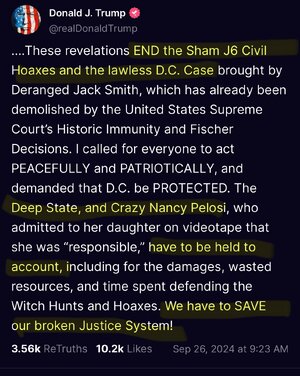“…
Justice says size of penalty against Trump ‘troubling’
… “The immense penalty in this case is troubling,” said Justice Peter Moulton. “How do you tether the amount that was assessed by the Supreme Court to the harm that was caused here where the parties left these transactions happy?”
…
Vale responded that while it was a large number, the process of disgorgement, or the return of “ill-gotten gains” looks to take away the gain from the wrongdoer.
“Although this is a large number, it’s a large number for a couple reasons. One, because there was a lot of fraud and illegality,” she said.
“That is an enormous benefit they got from this conduct” of falsifying financial statements to obtain better loan rates, Vale said.
The judges also questioned how the disgorgement was calculated. Justice Llinet Rosado asked if it should have been calculated based on the difference in the property valuations.
Vale argued that the disgorgement was properly calculated based on the difference in loan rates that Trump received from the falsified financial statements, which they were able to quantify.
She also pushed back on the notion that the penalty against Trump “double-counted” the Trump’s sale of Old Post Office building in Washington, DC, saying that the disgorgement properly included both the benefit Trump received with a better loan rate and the profits from the sale. …”
… The panel did not rule at the end of Thursday’s hearing and no decision is expected before the election, and the appeals court ruling can still be appealed to New York’s highest appellate court.”







